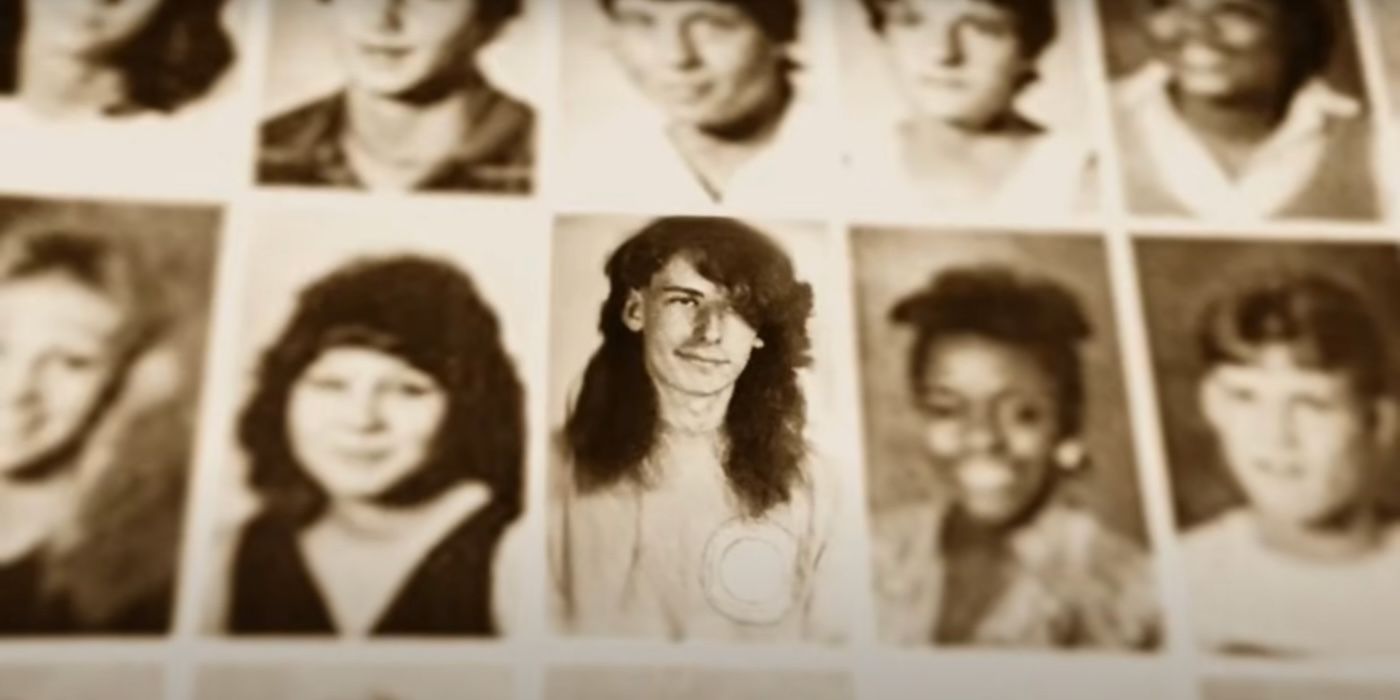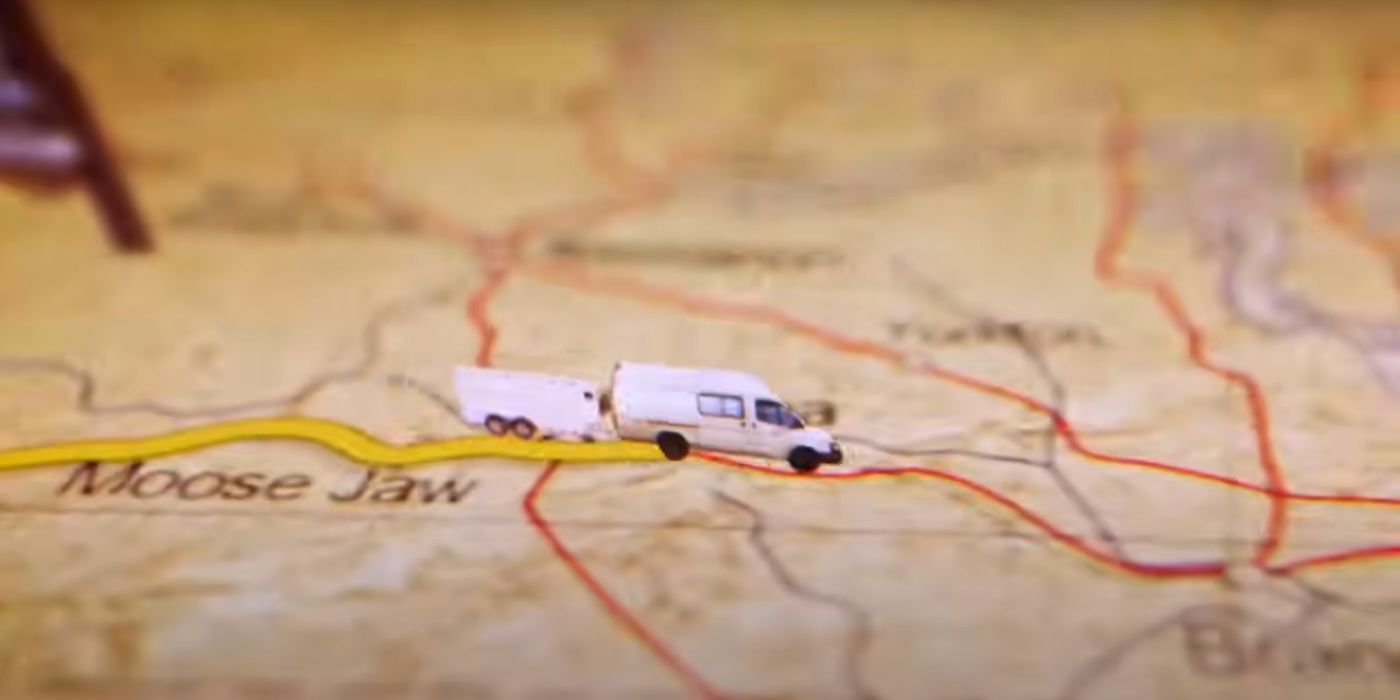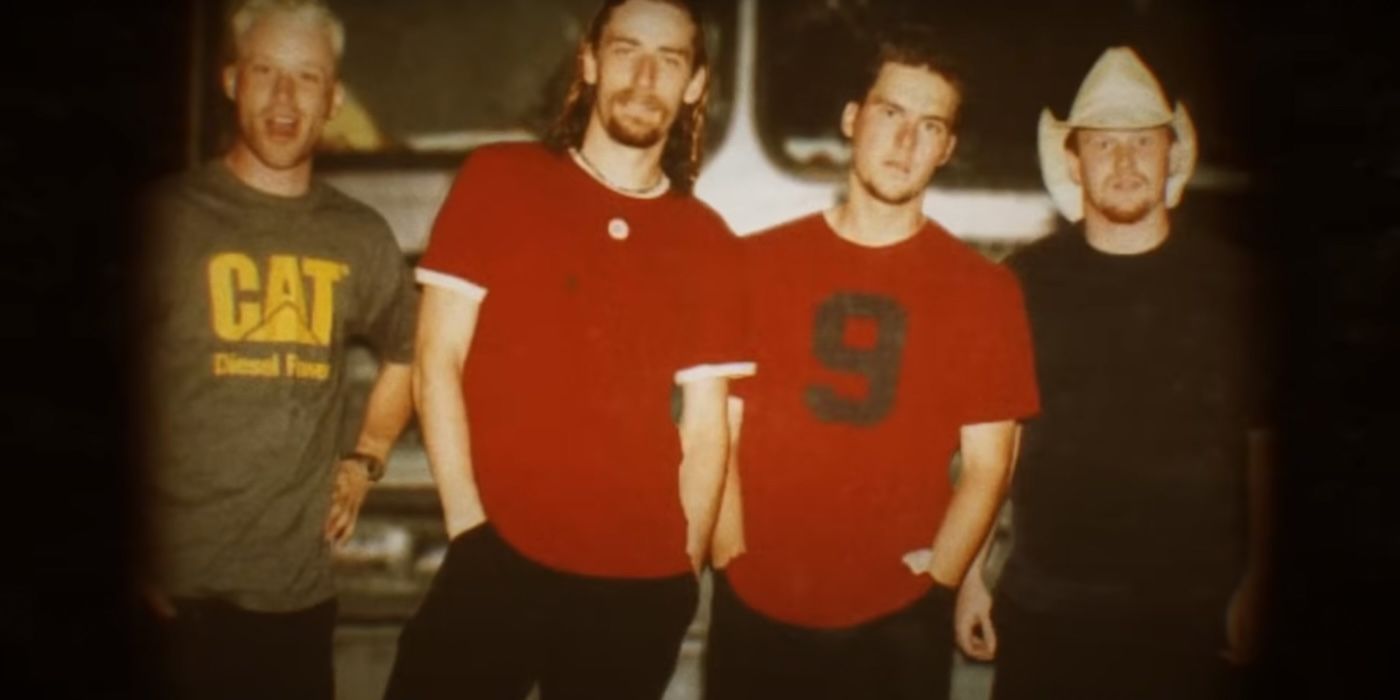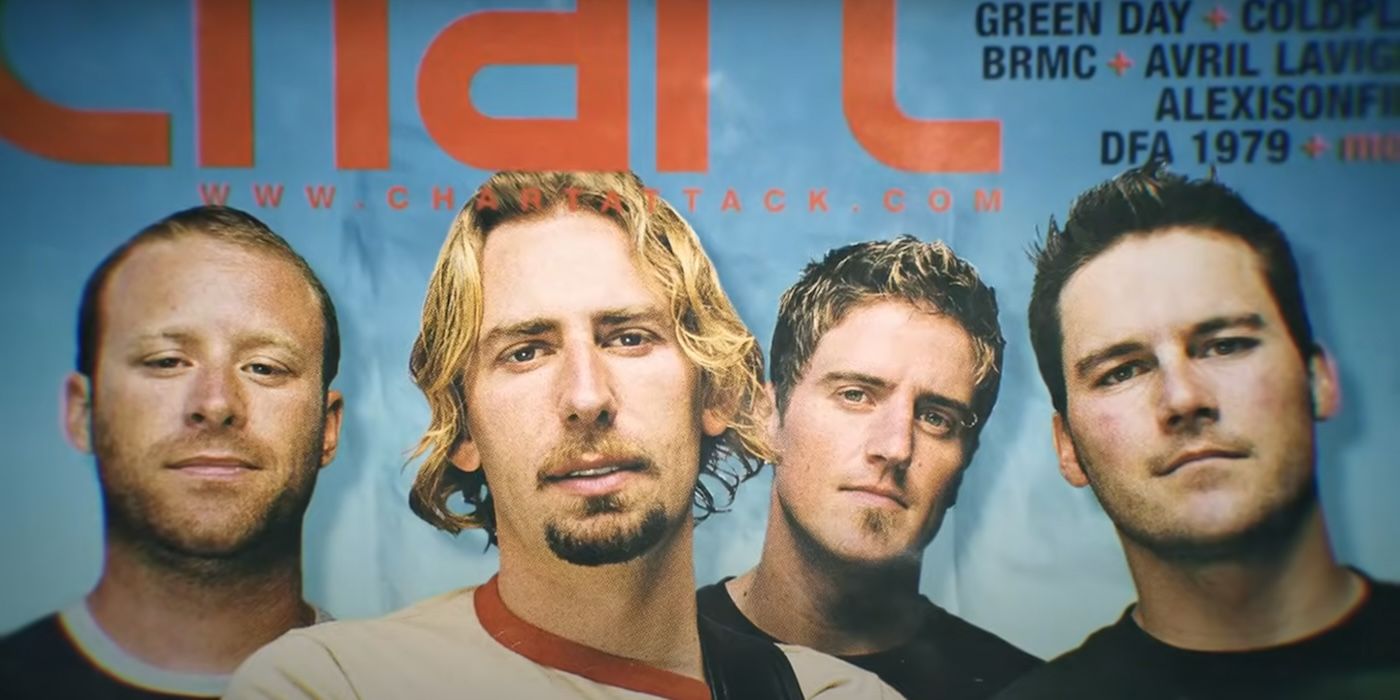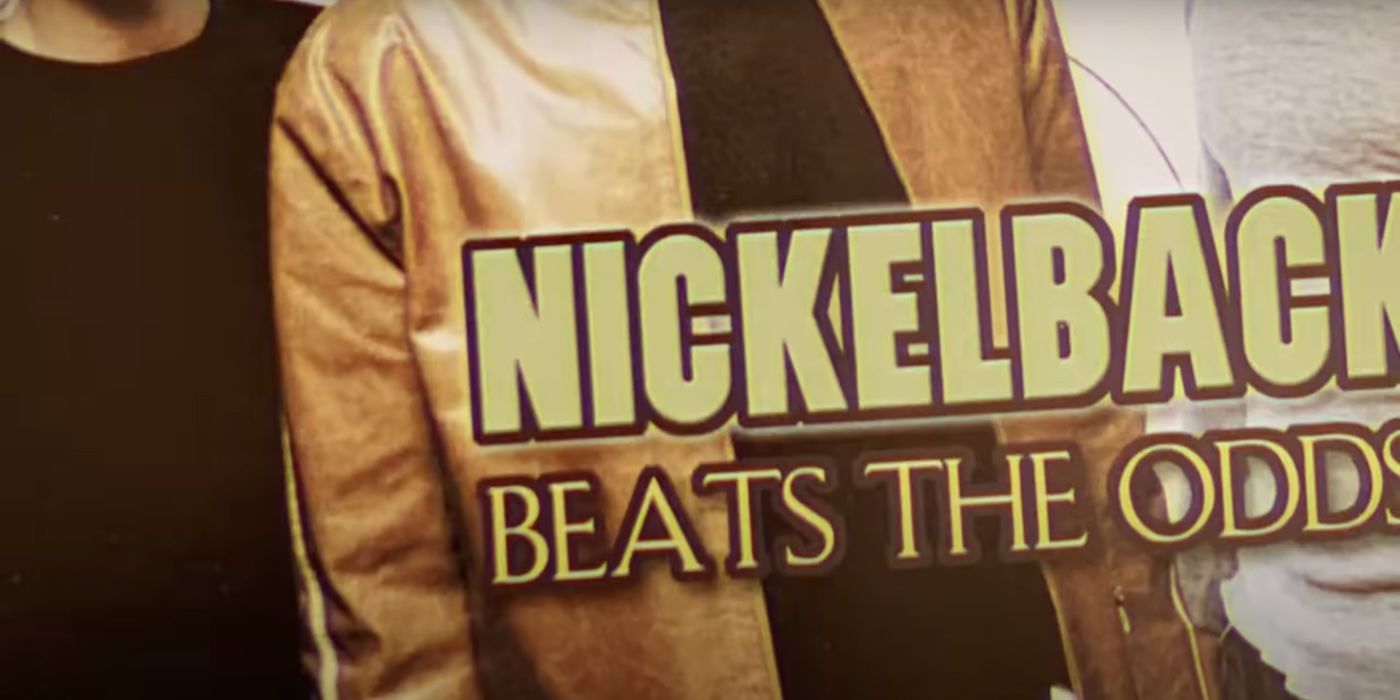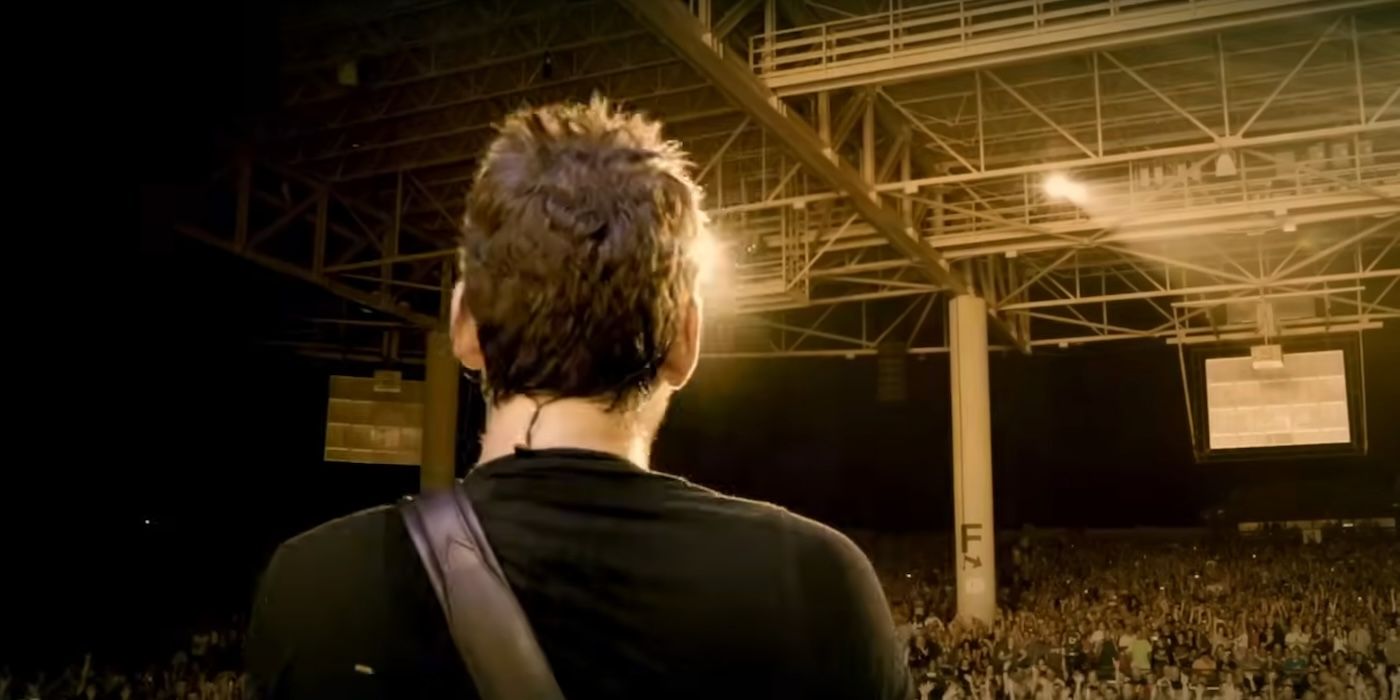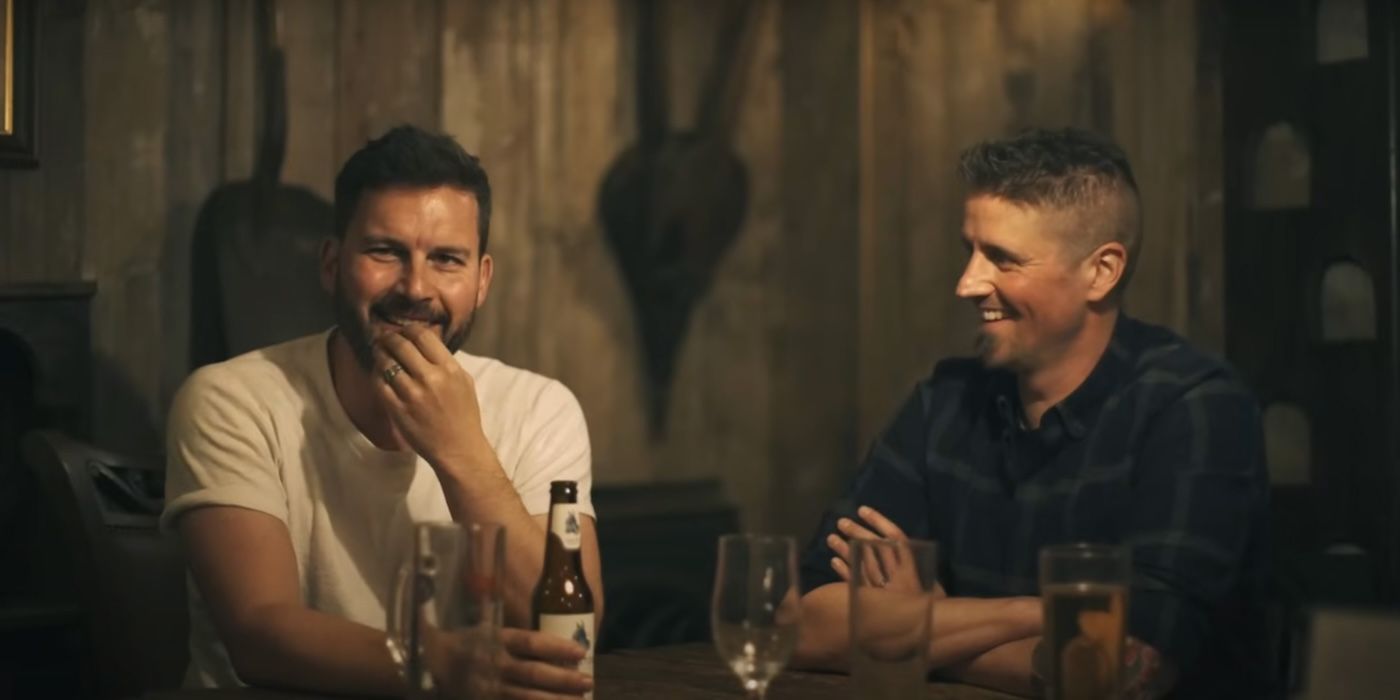Summary
- Nickelback was formed by Chad Kroeger, Mike Kroeger, Ryan Peake, and Brandon Kroeger (cousin of Chad and Mike) in Hanna, Alberta in the 1990s.
- Despite facing financial challenges, Nickelback eventually signed with Roadrunner Records, a label primarily known for metal music.
- Nickelback faced a huge backlash on social media in the 2000s largely stemming from them being
“too mainstream.”
Hate to Love: Nickelback from Netflix reveals the details behind the rise of one of the most popular bands of the 21st century. Originating in Hanna, Alberta, the hometown of some of the band’s key members, Nickelback became a quintessential part of the music industry in the 2000s. Possibly due to overexposure, Nickelback faced a huge backlash complaining about the quality of their music and making them a massively divisive group. The Netflix music documentary recounts events viewers may already know about, and some surprising behind-the-scenes facts.
Social media was set ablaze in the mid-2000s with hate for Nickelback, but also defense of the band. Nickelback experienced various highs and lows of a whirlwind of success, professional jealousy, and critical reviews, all while doing their best to maintain fulfilling personal lives. They saw a strange revival in the 2020s when fans were eager to see them return after COVID-19 and a new generation began to discover them through TikTok and other platforms. All this in more is recounted in detail in Hate to Love: Nickelback.
Related
30 Best TV Shows On Netflix Right Now (July 2024)
From classics like Grey’s Anatomy and Seinfeld to twisty sci-fi like Stranger Things, the best shows on Netflix have something for everyone.
10 Chad & Mike Kroeger Grew Up In A Dysfunctional Family
Brothers Chad and Mike became the lead singer and bassist for Nickelback.
Chad and Mike Kroeger may be considered the founders of Nickelback, who both grew up in Hanna, where future band member Ryan Peake moved later on. The Kroeger brothers were very close as children despite their different personalities, as Chad was much more outgoing and got into trouble with the police often. Chad was caught breaking into his school and sent to juvenile detention sometime in his early teens; his family saw music as an outlet that kept him out of trouble.
Mike mistakenly believed into his teen years that he and Chad had the same father, who was also largely absent or told to stay away from them by the rest of their family (their grandfather at one point chasing him away with a gun). They were raised by their mother, Debbie Sullivan, and both use her maiden name Kroeger. Mike also describes Chad as having been a very protective older brother throughout their childhood.
9 Nickelback Went On Tour With Little Return At First
Nickelback performed at any venue they could when they started trying to make a name for themselves.
When Chad and Mike met Ryan, they started experimenting with music and performing with the brothers’ cousin Brandon Kroeger as their drummer. These four musicians became the original members of Nickelback and started traveling to perform outside of Hanna. They went to Vancouver to record a few songs, a moment they refer to as “the inception of the band,” which led to more gigs. They went on the road in an old van that their families were afraid would break down.
The founding members of Nickelback showed a lot of endurance in these early years, setting up and taking down their own shows with little help, performing at any club they could find, with maybe 20 people watching them. Booking agent Ralph James comments in the documentary that Canada is so spread out that it’s difficult for burgeoning bands to do this. Record sales were also slow at that time.
8 Nickelback Relied On Donations & Loans In Their Early Years
Nickelback took money from family and friends to fund the beginning of their career.
Chad borrowed money from his stepfather, while Ryan’s mother also gave them several thousand dollars to record and physically produce their first CD. According to Ryan, “Once you were in and owed money, the only way […] to get any money back is if we just kept digging.” The band also opted for an untried lawyer with a lower fee to review a management contract. Members of the band handled delivery and outreach when they couldn’t afford a booking agent or any similar administrative staff.
The band’s members mention some other loans in the documentary, again suggesting the pressing issue of debt.
The band’s members mention some other loans in the documentary, again suggesting the pressing issue of debt. Yet they also imply that their families supported them and that they never felt like they should stop, committed to making Nickelback a success. However, the only way forward to earn back the money was constant touring and performing, at which point Brandon quit due to the time commitment. It was after he left that the band took the risk of taking out a loan of $30,000 to afford better management, while their families also borrowed some money.
7 Nickelback Was Signed By A Label Known For A Different Musical Genre
Nickelback getting a record deal with Roadrunner Records was surprising to some people.
Mitch Guindon briefly replaced Brandon as drummer but was also overwhelmed by the touring schedule. He was replaced by Ryan Vikedal just before the band was signed by Roadrunner Records. Ron Burman, the label’s former senior VP, believed that Nickelback could be an arena rock band. Nickelback traveled to New York to meet with the label’s executives, still without a manager. However, Roadrunner was primarily known for metal, which made the band members nervous to sign.
Despite their misgivings, Nickelback signed with Roadrunner, to the chagrin of some of the label’s metal artists. However, Roadrunner needed the money that Nickelback would bring them to continue to support their other artists and pay their employees. The decision paid off for both the band and the label, with the band suggesting that Roadrunner would have cut them loose if it had not.
6 “How You Remind Me” Was The Beginning Of Nickelback’s Success
One hit single was the harbinger of everything changing for Nickelback.
When Chad came to the other band members with the beginnings of “How You Remind Me,” none of them thought much of it besides that it was another good song. However, as soon as they sent it out to radio stations, the song was suddenly everywhere. Hate to Love: Nickelback suggests that this was the transformative moment for Nickelback. Following the hit single, they released an album, which sold an astounding number of copies.
Meanwhile, the band began selling out arenas and were recognized everywhere they went. Around the same time, “Hero” and “Too Bad” were also released and were also repeatedly played by radio stations everywhere. At this point, the documentary ominously suggests that it was too good to last, saying that “they were so mainstream that they were considered to be irrelevant artistically.” Nickelback continued to enjoy its sudden, insane popularity for a while, touring worldwide.
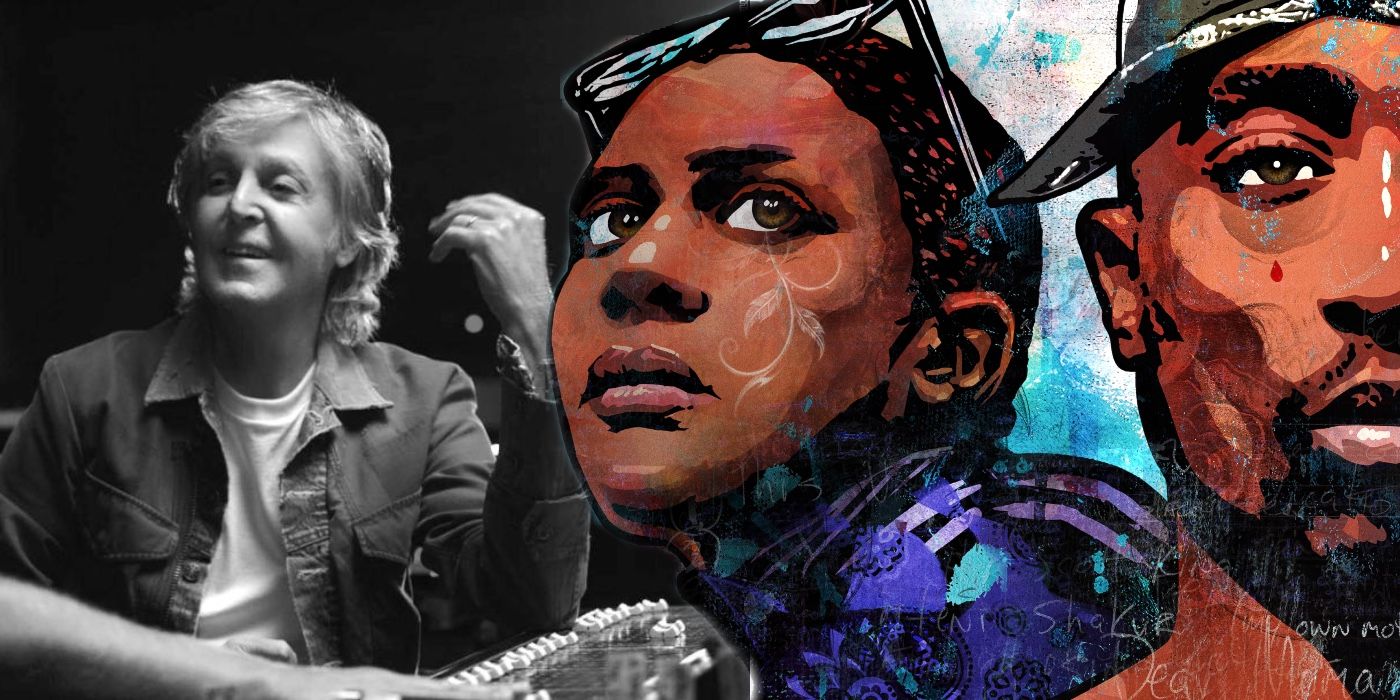
Related
25 Best Music Documentaries On Hulu
Hulu has a wide collection of music documentary movies and series, ranging from The Beatles to Amy Winehouse. These are the best to check out now.
5 Ryan Vikedal Was Asked To Leave Nickelback By The Other Members
A band member being asked to leave Nickelback was a difficult moment, but was resolved peacefully.
After these hit singles and their first truly successful album launched them to mainstream success, Nickelback was constantly touring. The schedule was taking a toll on everyone, but the band noticed that it was particularly affecting then-drummer Ryan Videkal. Things did not let up when the band released a new album with (comparatively) disappointing sales and sold fewer concert tickets, also only considered a failure by comparison. After the new album, the band set off on a new tour.
At this time, Nickelback decided that Ryan’s performance wasn’t what it needed to be, and he was asked to leave the band. He did not speak to any of the others for a few years until Ryan (Peake) reached out to him again. The two both explained their side of things and the matter was resolved; Videkal appears to be on friendly terms with the rest of Nickelback and appreciates the time he spent with them. He was replaced as drummer by Daniel Adair.
4 “All The Right Reasons” Marked A Turning Point For Nickelback
The release of the most successful album yet signaled good and bad changes for Nickelback.
Hate to Love: Nickelback then characterizes the album All the Right Reasons as another milestone. This album features some of Nickelback’s most iconic tracks, including “Rockstar.” They saw more fame and financial success than ever before, resulting in them expanding their tour to all having their own buses, allowing their families to travel with them. However, this was also the time when hate for Nickelback “began to exceed what seemed to be reasonable.”
It prompted Nickelback to become a very divisive subject, as they also had their ardent defenders.
The rise of Nickelback coincided with the rise of social media in the 2000s; the band’s runaway popularity clashed with jealousy, distaste for such mainstream music, and new platforms where critics and audiences could complain about them. This gave rise to a wild online anti-Nickelback culture, driven by mean-spirited memes and other social media content. It prompted Nickelback to become a very divisive subject, as they also had their ardent defenders.
3 Nickelback’s Families Also Faced The Backlash
Nickelback’s members’ families reported also getting into arguments over the band.
While critics were never big on Nickelback, the increase in derision from the public was a harsh new reality. Interviews in the Netflix documentary suggest that no one felt the effects of the backlash against Nickelback than Chad. As the lead singer and guitarist, Chad was “the face of Nickelback.” He was also in a relationship with another celebrity and hugely successful musical artist, Avril Lavigne, for some time, which “quadrupled” the attention and negative effects directed at him.
However, the circumstances surrounding the band became even worse as they started to affect people outside the band itself. Mike’s kids give an interview where they say that they faced bullying in school because people didn’t like their dad’s band. The kids generally felt compelled to defend Nickelback, although their parents told them to ignore the comments. Until the band saw something of a revival following lockdown, this appears to have been a negative situation for everyone directly involved.
2 Nickelback Refused To Let Daniel Adair Leave The Band
The current Nickelback drummer tried to leave due to a medical condition, but the others insisted he stay.
Nickelback dealt with multiple setbacks in the form of injuries and serious medical conditions over the years, including Mike having a stroke and undergoing intense treatment to recover. Chad also lost his voice for a time, resulting in a streak of canceled concerts. Both came back from these conditions, while Daniel contracted a neurological disorder, causing one of his arms to freeze up while he was trying to play the drums.
Amid the worst of COVID-19, Daniel believed that he had no choice but to quit, and sent an email to the others telling them that he was leaving. However, the band immediately protested, particularly Chad. Nickelback insisted that they would wait for Daniel to seek treatment and would hire an interim replacement for him. Daniel was deeply touched by this, as he was the newest member of the band and sometimes felt like an outsider. He is currently still the drummer for Nickelback.
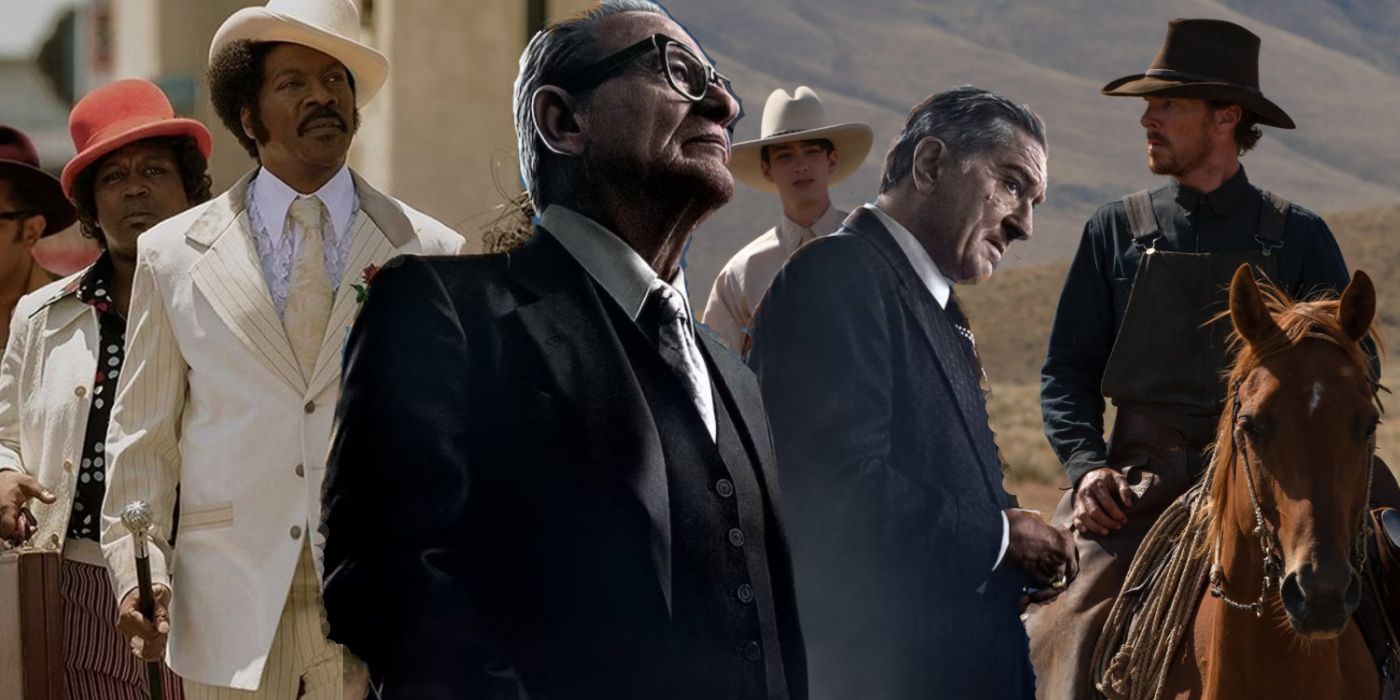
Related
The 30 Best 4K Movies On Netflix
Ultra HD viewing enhances movies from almost any era, and the best 4K movies on Netflix come from its wide selection of UHD-enabled titles.
1 Nickelback Returned To Hanna To Perform As Village Idiot
Nickelback gave a special homecoming performance following the pandemic.
Sometime after lockdown lifted, Nickelback was asked by a friend to return to Hanna to perform for a fundraiser. They performed under the name Village Idiot, which was the cover band comprising the original four band members before they became Nickelback. People traveled from far and wide to see this special concert; the documentary highlights some Nickelback fans who came from the UK to see it. The band also had a chance to take a trip down memory lane.
Nickelback visited some of the locations where they first composed songs and rehearsed, and saw old album covers on display in town. They give the impression of the entire experience being surreal and disconnected from their present-day lives in a bittersweet way. This nostalgic beat deftly brings the chronicle of Nickelback’s career in Hate to Love: Nickelback.
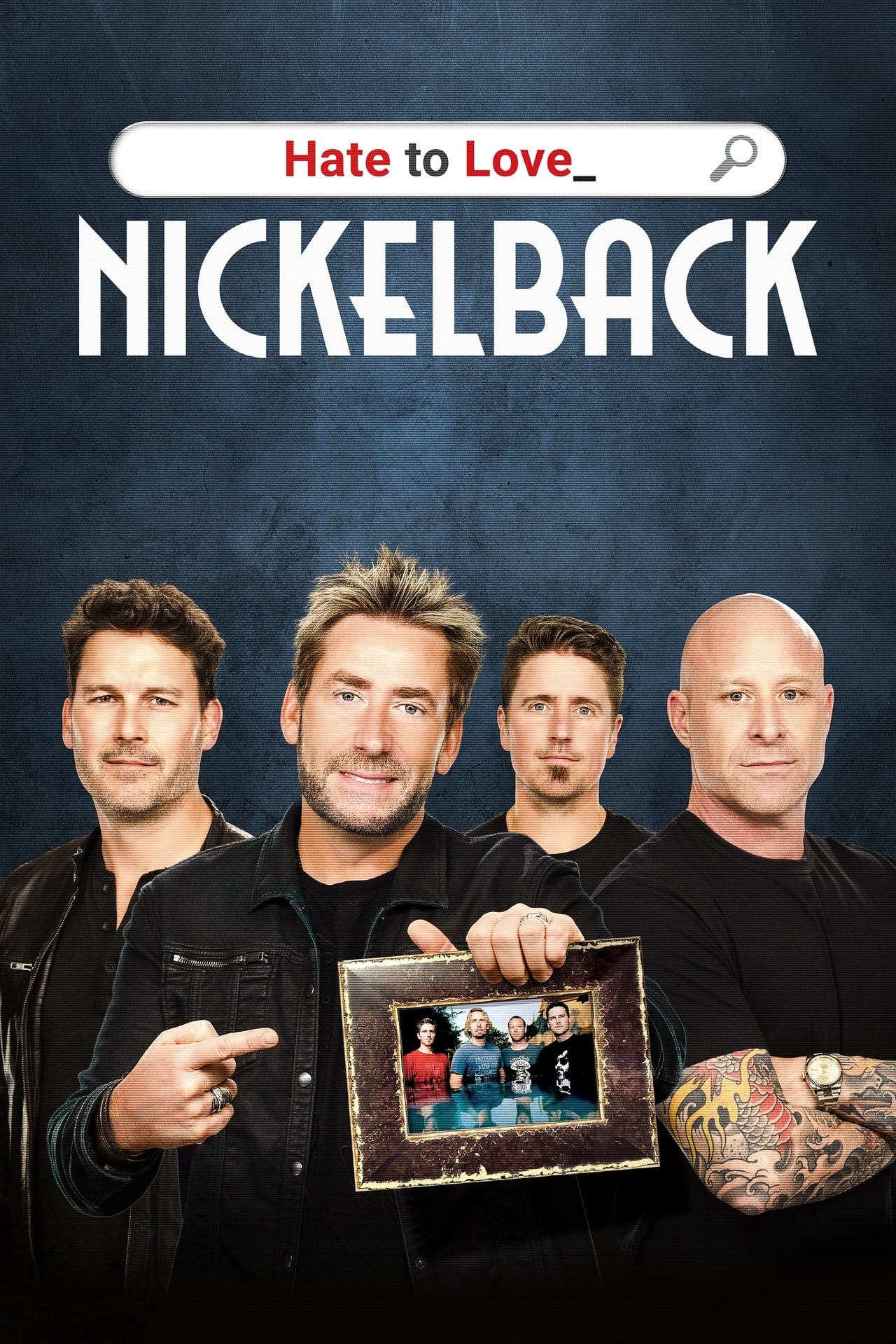
Hate to Love: Nickelback (2024)
A comprehensive documentary chronicles the rise of Nickelback from their origins in Alberta to global fame with hits like “How You Remind Me.” The band members open up about their journey, discussing the impact of fame, the backlash from critics, and the loyalty of their fans. They reflect on their break from the spotlight and their successful comeback with new music and tours, offering a candid look at their personal and professional experiences through the years.
- Director
- Leigh Brooks
- Release Date
- March 27, 2024
- Cast
- Daniel Adair , Chad Kroeger , Mike Kroeger , Ryan Peake , Nickelback
- Runtime
- 90 Minutes
